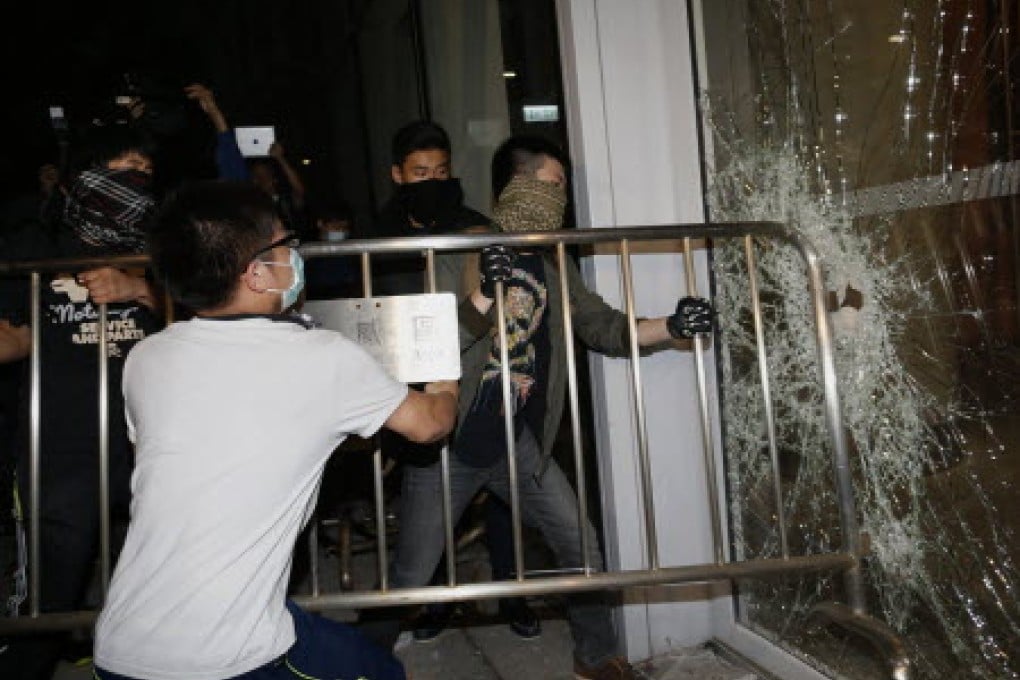Security checks for all as Hong Kong’s Legco building beefs up protection
Lawmakers and journalists will be subject to checks under security code yellow or higher.

Everyone who enters the Legislative Council complex, including lawmakers and members of the media, will undergo a security check when the danger code is raised to yellow or higher, under new security measures due to take place May 1.
In addition, roller shutters and metal barricades will be installed on the building entrances and the CCTV camera upgraded to record sound at the covered area in front of the protest zone at the building’s north entrance.
The new measures are based on recommendations made in a security adviser’s report commissioned by Legco last year after a glass partition was smashed during the Occupy protests and another cracked by protesters who stormed the building in a demonstration against the controversial plans for two new towns in the northern New Territories.
Speaking after a meeting of the council commission this morning, Legco president Jasper Tsang Yok-sing said all members of the public would undergo security checks starting on May 1, while lawmakers and members of the media would face the checks only when the danger code was raised to yellow.
Raising the danger code to yellow will require approval from the chairman of the council commission and the agenda-setting House Committee. In addition to the enhanced security checks, police would be put on standby. Red is the highest level of alert, under which meetings are to be halted.
Kenneth Chen Wei-on, secretary general of the Legco secretariat, said earlier the yellow danger warning would come into effect if security staff detect a hostile and possibly violent group near the building.
